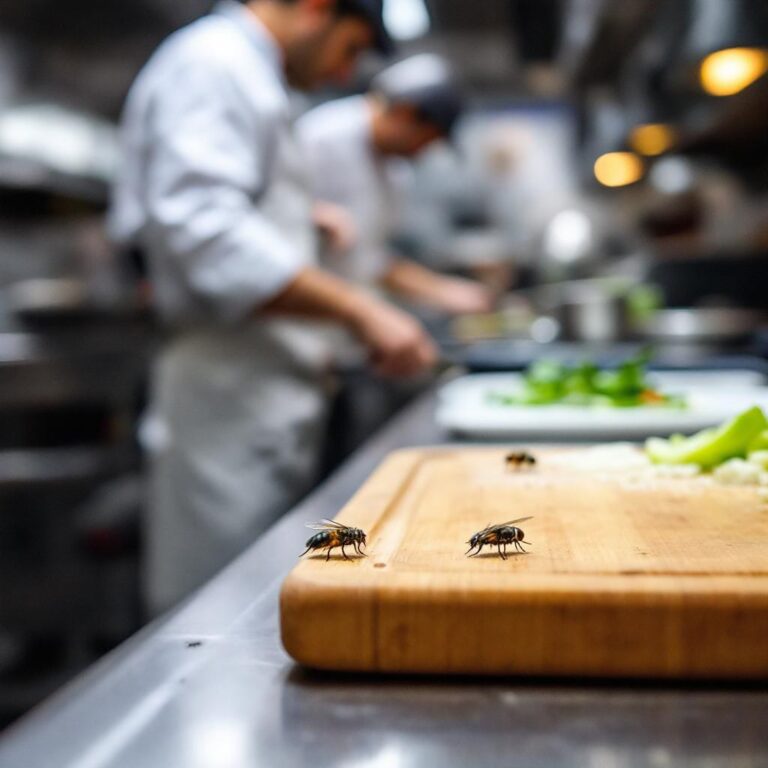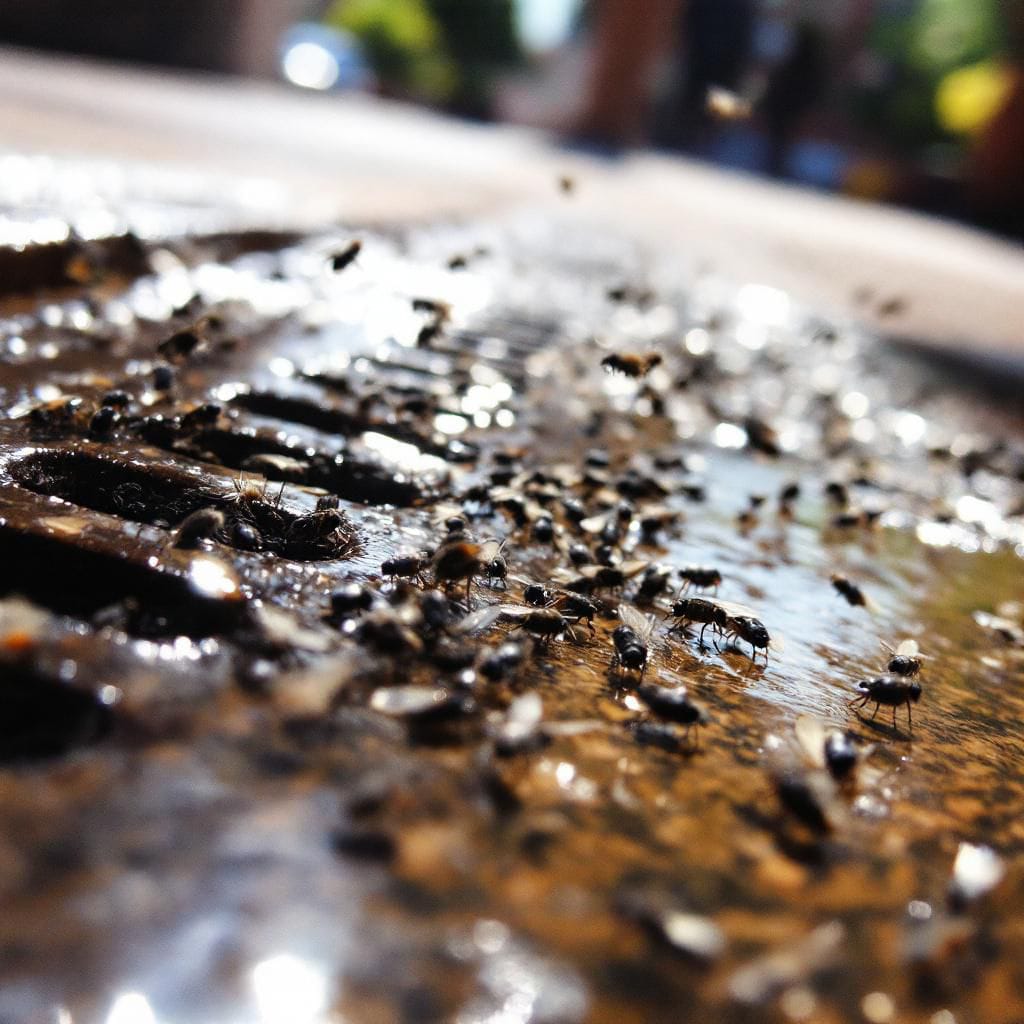Pest Library
Fly Facts &
Information
Surprisingly, flies taste with their feet and often vomit digestive fluids onto solid food to liquefy it before consumption—contaminating anything they land on. Most active during the day, they are commonly seen near trash, open food, and warm areas. At AIPM Pest Management, we understand the serious health risks flies pose and provide effective, safe treatments to eliminate and prevent infestations.Protect your home or business from flies by learning techniques for
identification and control.

Order Diptera
IDENTIFY
Identify Flies
What do flies look like?
Flies are small, fast-moving insects with soft bodies and a single pair of transparent wings. Most common houseflies measure around 6–7 mm in length and have large, reddish compound eyes that give them excellent vision. Their bodies are usually gray or black with distinct dark stripes on the thorax, and their legs and wings are slender and delicate. Flies also have short antennae and mouthparts adapted for sucking and sponging liquids. Their rapid movement and constant buzzing are easy to recognize. At AIPM Pest Management, we help you identify fly infestations early and provide effective solutions to keep your space fly-free.
Locate them
Where Are Flies Found?
Flies are typically found in warm, moist, and unsanitary environments where food waste, decaying matter, or organic material is present. Common areas include kitchens, garbage bins, drains, food stalls, animal shelters, and compost areas. In agricultural settings, flies are often found near livestock, manure, and crop residue. They are attracted to strong odors, uncovered food, and dirty surfaces. Cracks, open windows, and doors also provide easy entry into homes and buildings. At AIPM Pest Management, we identify fly hotspots around your property and implement targeted treatments to eliminate breeding grounds and prevent future infestations.Flies are highly adaptable and thrive in various environments, especially those with abundant food sources and breeding grounds.

Pest Treatment
Understanding Flies & Prevention
Flies are more than just an annoyance—they are carriers of harmful bacteria and viruses, spreading diseases like food poisoning, typhoid, and dysentery. Attracted to decaying matter, garbage, open food, and moisture, they breed rapidly in unsanitary conditions, making them a serious hygiene threat in homes, businesses, and farms. Understanding their behavior is the first step to control. To prevent flies, ensure proper waste disposal, keep food covered, clean drains regularly, and eliminate standing water. Installing screens on windows and sealing entry points can also help block access.Flies invade households and workplaces in search of food, moisture, and breeding grounds. They are drawn to exposed food, waste, and sugary substances, with kitchens and garbage bins being prime targets. Moist environments like stagnant water and leaky pipes also attract them. Flies seek warm, sheltered spaces for reproduction, posing health risks by contaminating surfaces and spreading bacteria.


Flies Facts
Understanding
Fly Problems
Flies may seem harmless, but they pose serious health and hygiene risks in both residential and commercial spaces. Attracted to food waste, open garbage, moisture, and organic matter, flies breed rapidly and can spread harmful bacteria such as E. coli and Salmonella simply by landing on surfaces or food. The more you know about flies, the better you can predict and control their behavior. Here are some quick facts to help you on your way.
FAQ
Frequently asked questions.
An infestation is usually obvious when you see a large number of flies indoors, particularly near food, garbage, or damp areas. If flies are frequently buzzing around or resting in these areas, it may indicate a nearby breeding site. Flies are attracted to decaying organic matter, which can be the cause.
We provide pest control for various fly species, including houseflies, which are attracted to food and waste; fruit flies, which thrive near decaying food; blowflies, attracted to decaying meat; drain flies, which breed in sewage systems; and horseflies, known for their painful bites, especially around livestock and rural areas.
Our services include a thorough inspection of your property to identify potential breeding grounds. We then offer targeted treatments, such as insecticides and larvicide applications, as well as fly traps. Additionally, we offer preventive measures like sealing entry points and reducing attractants to prevent future fly infestations.
Yes, we prioritize safety by using eco-friendly, non-toxic treatments that are effective against flies while ensuring the safety of children, pets, and the environment. We carefully follow safety protocols and provide guidelines to minimize exposure during and after the treatment process.
To prevent fly infestations, regularly dispose of waste, cover food, eliminate standing water, and keep food storage areas clean. Seal cracks and gaps around windows and doors, and use mesh screens to block flies from entering. These measures help reduce attractants and minimize the chances of flies entering your home or workplace.
Eliminate pests and prevent future problems.
We are here for you 24 hours a day, 7 days a week.
- +91 9607171409

